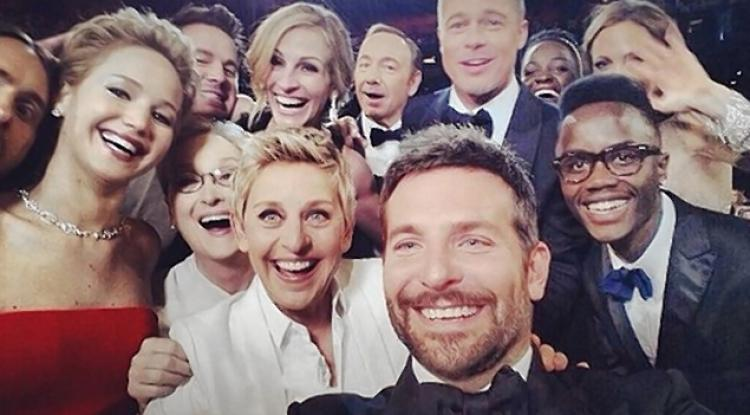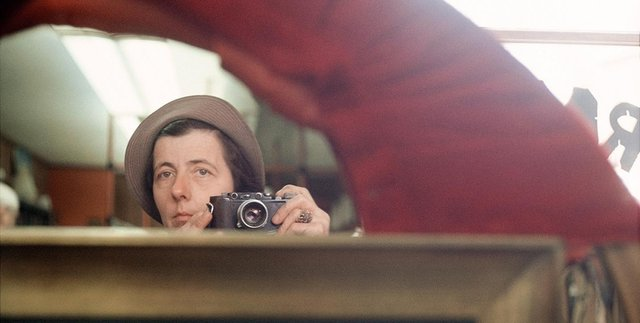Do You Think the Selfie Has Devalued True Self-Portrait Photography?
Self portrait photography has always engendered a situation which requires an evaluation of the relationship between automatism and creative licence. This of course is a relationship which has been fraught with problems within art philosophy.
Traditionally, because of the mechanical aspect of photography, the element of automatism innate in every photograph has always been in competition or even conflict with the artistic endeavour. Therefore the end product for the camera user, or creative agent, can not be the result of a pure conscious controlled process, in this context the agent only has a limited artistic control of their work.
Due to the accidents, abstractions, chance and repetition inherent in the photograph it has meant artists can take advantage of automatism. However, some argue that automatism within photography has allowed artists to develop self-portraiture that substantially differs from previous visual art forms. This can be said particularly about the modern phenomenon that has emerged as a result of the proliferation of mobile phone use, this phenomenon is known as the ‘selfie’ – a picture taken using a smart phone camera of the person taking the picture.

(The Oscars selfie from 2014 became the most retweeted tweet ever.)
It is a form of casual self portrait and has found a prominent contextual meaning within social media platforms. It is a very immediate method of self construction through a lense. The relative ease and swift access to publishing ‘selfies’ means that it is very easy to define a sense of self using photography.
What is very important about the study of 'selfies' is that they remind us that it isn’t just about the raised arm or the mirror which characterizes the selfie photograph. It is more about reflection, recognition and identity, as individuals want to be in control of the image they are capturing and sharing. The practice of ‘selfies’ has been with us for decades, and the current phenomenon is an extension of the self timer function that is a feature of most cameras and allows an individual to set the timer then run in front of the camera and wait for photograph to be taken automatically. It is the term ‘selfie’ which proves to be a point of exploration for Fausing in his study.

(Vivian Maier was a mysterious woman who operated secretively in the art world, but she provides us with a very early example of self-photography.)
When we look at the ‘selfie’ phenomenon we are forced to look at other psychological and sociological subjects and themes relating to the human experience. Most notably the ‘selfie’ has been characterised by social narcissism. There is also a universal appeal of the selfie which unites both ordinary members of society and celebrities.
We’re now living in a reality in which subjective concepts of the self, other and institution are being merged together into a new collectivism based around social identity. In the new digital climate of sharing more and more personal information we seem to be using the ‘selfie’ as a source of truth which highlights past and future considerations of ourselves, including those elements of our lives such as food, journeys, social engagements and ‘self-made fame’.
Part of the psychology behind someone posting a selfie online is the hope of compliments in return, this of course is an integral part of social life and helps to generate self-esteem. We all like to feel good about ourselves. So if the producer of a selfie receives dozens or hundreds of approvals and flattering comments online after the publication of their ‘selfie’ it is reassuring and self-validating.
Peace!
Hello.
To confirm your authorship of the content, could you please add the word "Hive" to your well-established social media account like Facebook, Instagram, or Twitter (which has not been recently created).
After you add the link, please respond to this comment with the URL link to that website.
You can remove this mention, once we confirm the authorship.
Thank you.
More Info: Introducing Identity/Content Verification Reporting & Lookup
I can assure you this is my original work. I do not publish AI generated work.
I have written this post from a philosophical angle. I am trying to make my own balanced contribution to a specific area of the photography art arena, not just simply give the reader my own opinion.
I am doing my best with this post to be as balanced as possible, because after all there are often different sides to a debate. I am trying to explore both sides of the argument.
This post isn't trying to commit to one side of the argument or the other. It is very deliberately avoiding that. This will of course, and should, create a scholarly cohesion about the post.
In terms of repetition that is simply me returning to the core themes of the post, and the subject matter I am exploring.
There may be overlapping areas which I also explore but the main discussion within the post is all related to the question I pose, which forms the title of the post.
Alright. I requested verification instead in the comment.